My first business voice training experience [In-house training]
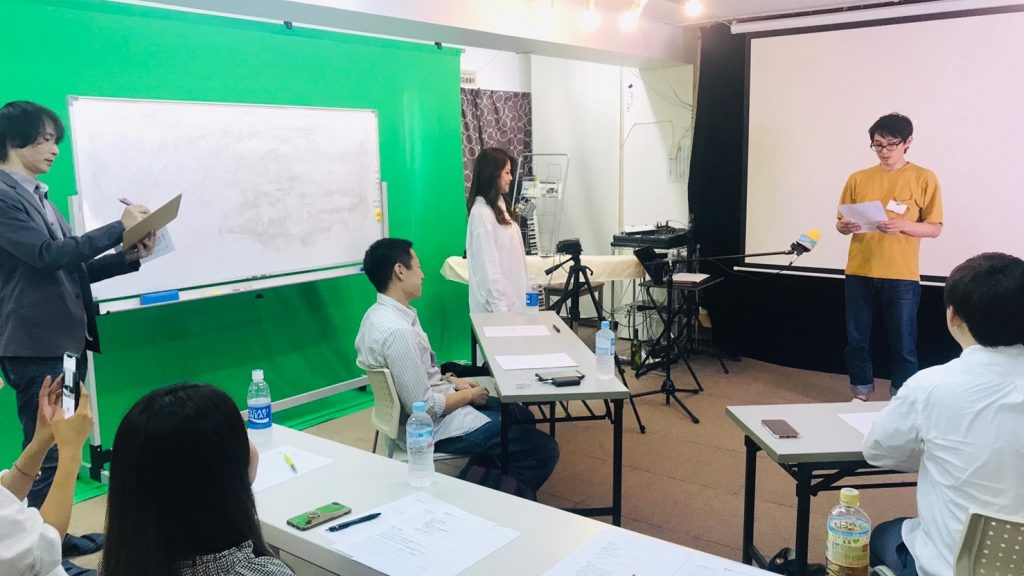
table of contents
My name is Umi Fujisawa, and I am in charge of public relations and recruitment
One thing you should do every day when you come to work is to say hello .
"Good morning" is something we say at least once a day
"Thank you for your hard work" is something we say about 10 times a day
Because we say it every day as a matter of course, don't you sometimes end up being careless about it?
there have been whispers within the company that "greetings are becoming less and less formal."
In order to solve this problem, several of our employees went to a voice training
The lecturers were Kumada and Yasu Amiko from Take Seven Co., Ltd. which plans and operates Shanana TV
Mr. Kumada is a former musician who currently provides voice training to numerous artists. Take Seven and our CEO, Haraoka, have teamed up to create a "Business Voice Training"
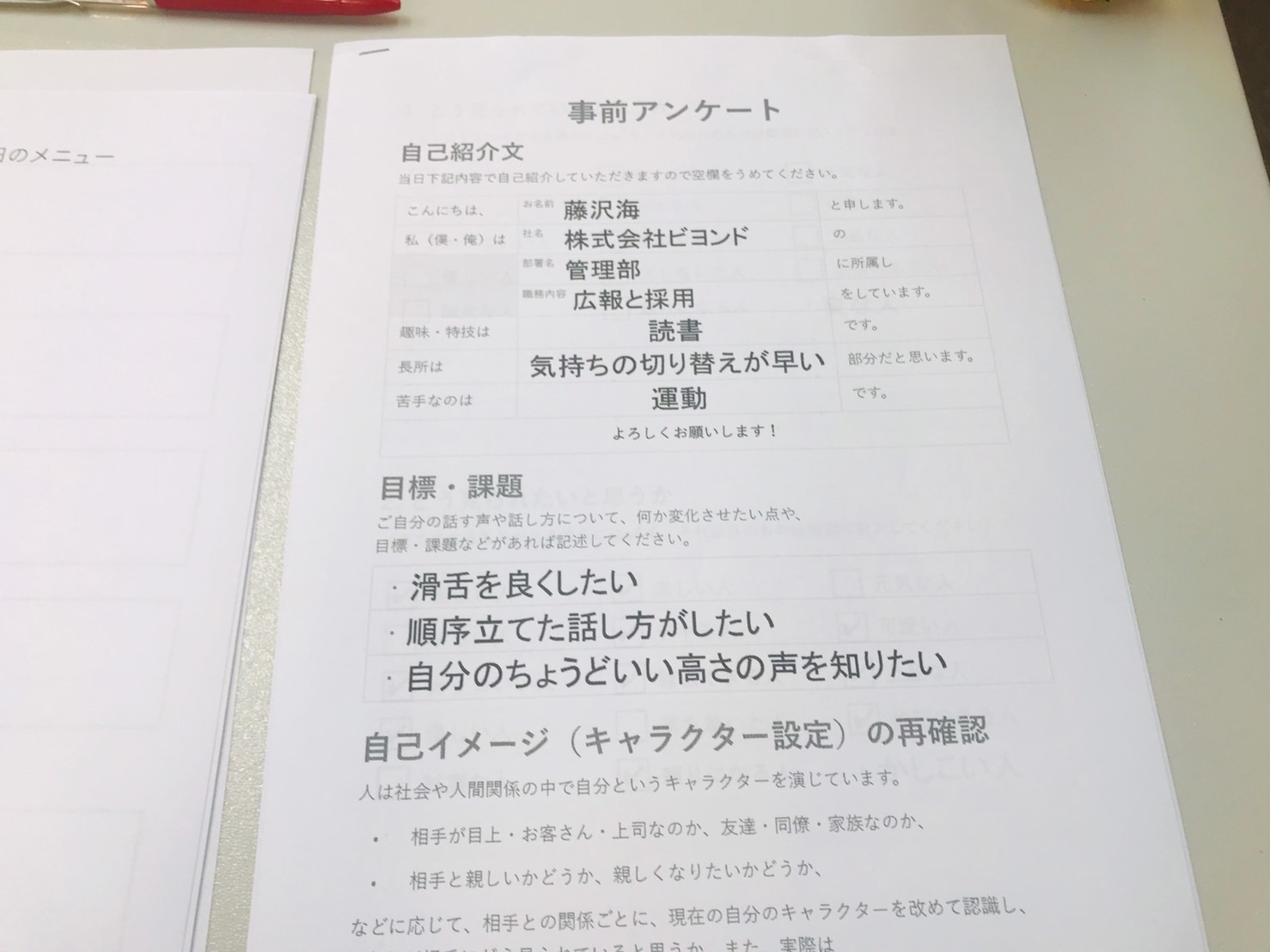
Before attending the training, participants filled out a questionnaire introducing themselves and describing their goals and challenges
"People play characters within their company and relationships."
When I heard this approach, I thought, "Is that so?", but then I agreed, "That's true."
The fact that he changes the tone of his voice depending on who he's talking to means that he's acting all the time
first half
Filming a self-introduction
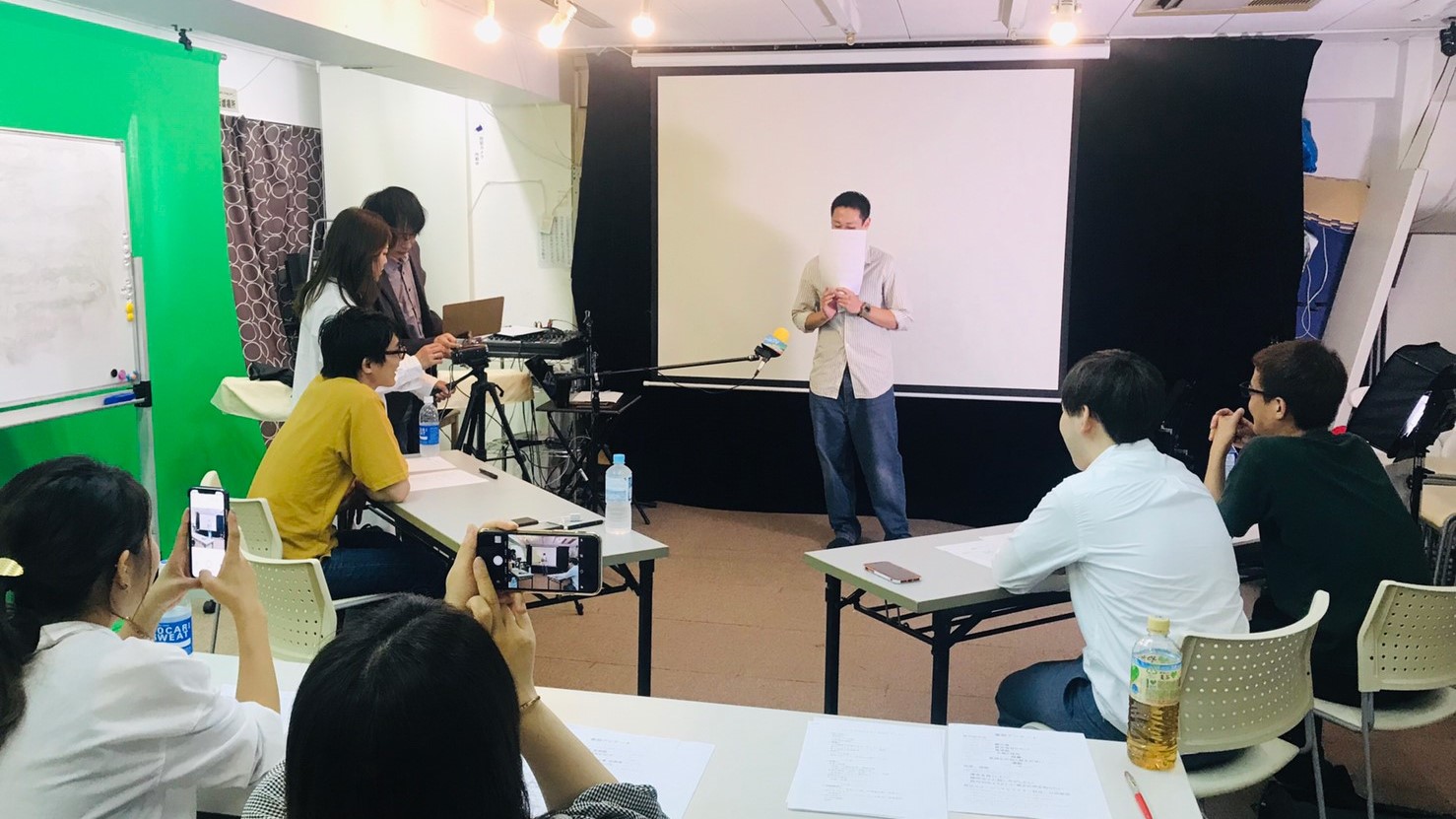
First, we start by reading out the self-introduction you filled out in the questionnaire
At the end of the training, participants read the same self-introduction, and a video camera is set up to record it to verify how much their voices have changed
I'm not used to being photographed, so I felt a little embarrassed and nervous..
Vocalization points
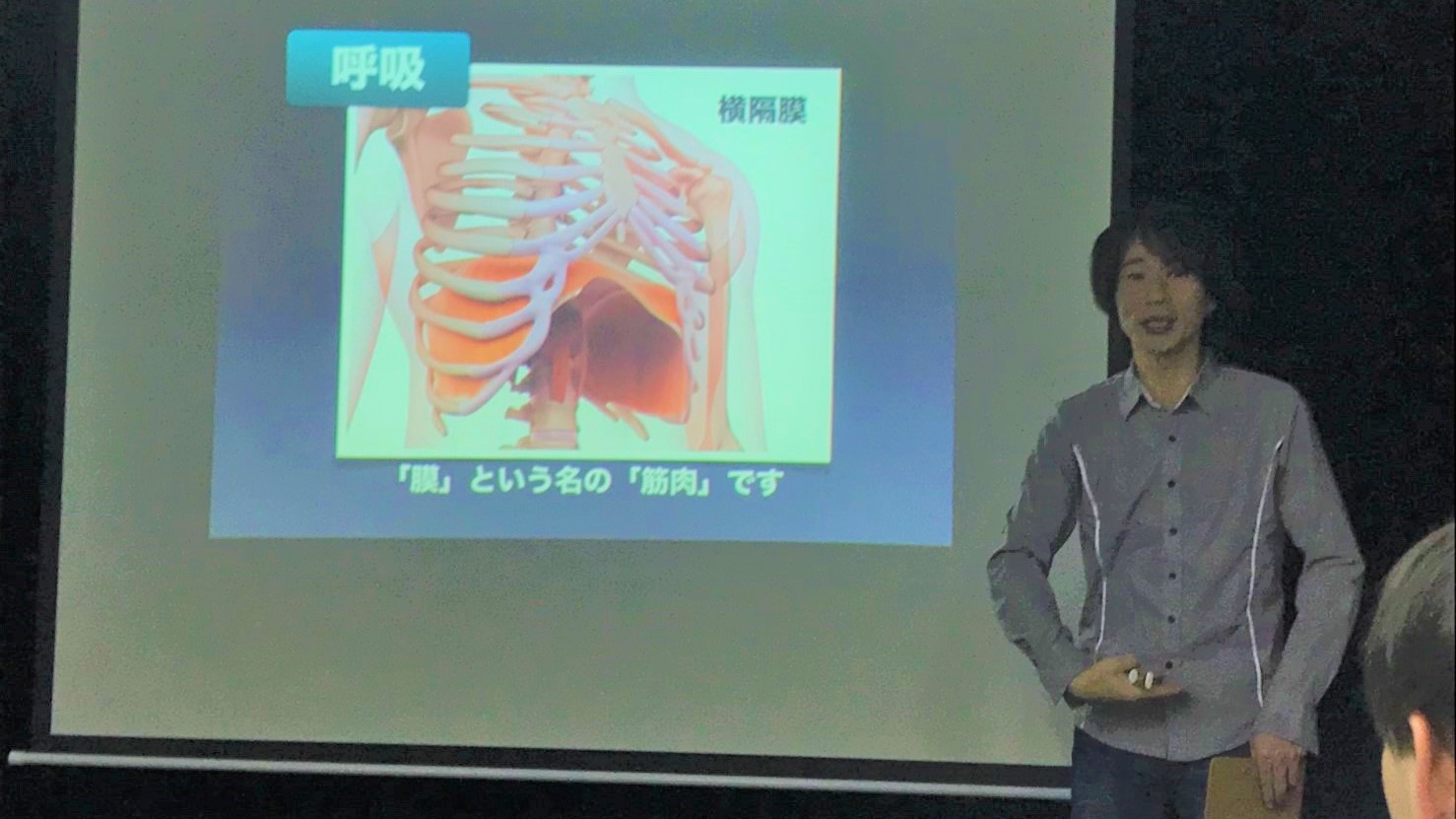
Next, we learned the knowledge necessary for vocalization
Release the brakes on your voice
everyone has a "voice brake on ," and by releasing the brakes rather than trying to speak louder, you will naturally be able to produce a voice that resonates.
Even if you're told to "speak loudly," it's often difficult to do so, but if you imagine "releasing the brakes on your voice," you'll be able to relax and speak louder
seems that the best vocalizations are when you spontaneously say things like "Ah!", "Eh!?", and "Ohhh!!"
Kumada-san: "Did you bring that document today?"
Beyond : Ah!
Kumada-san: "I heard that person was arrested."
Beyond : Huh?!
Kumada: "Your bonus will increase!"
Beyond: "Ohhhh!!!"
We practiced vocalization using a call and response method
Knob to adjust the voice
There are four elements of expression that are important when speaking
- Vocalization: Expressions using the way you use your voice (how much breath you take, how tight your throat is)
- Pitch: Expression using vocal tone (pitch, range of intonation)
- Pronunciation: Facial expressions (clear pronunciation, bold pronunciation, smiling face)
- Rhythm: speaking speed (slow, fast)
knobs inside our bodies that can adjust these four expressions
For example, when you want people to think you're cute
- Vocalization →Take less breath and tighten your throat
- Pitch → Use a high voice to add emphasis
- Pronunciation → Smile with clear pronunciation
- Rhythm → Slow
You have to conquer these four
It seems like it would be impossible, but it seems that announcers and entertainers all over the world are thorough in this regard
On the other hand, when you want to be seen as a dandy (or a little bad)
- Vocalization → Take a deep breath and open your throat
- Pitch → Low and modest intonation
- Pronunciation → flashy pronunciation (sharp pronunciation)
- Rhythm → Slow
A voice like Nao Omori's is the best. (This is my personal opinion.)
In addition to voice, it is also important to communicate visually through eye contact and gestures
When I'm at work, I often talk without making eye contact and without making any movements while working on my computer, so I often end up not being able to properly convey what I want to say, and the conversation ends halfway through
In such cases, try looking away from the computer for a moment, looking into the other person's eyes, and making some hand movements. This will a visual element to your hearing making it easier to understand what is being said.
It's not a good feeling when someone talks to you without making eye contact, and it's more likely you'll want to listen if you can sense that they're trying their best to communicate with you
Second half
Reading practice
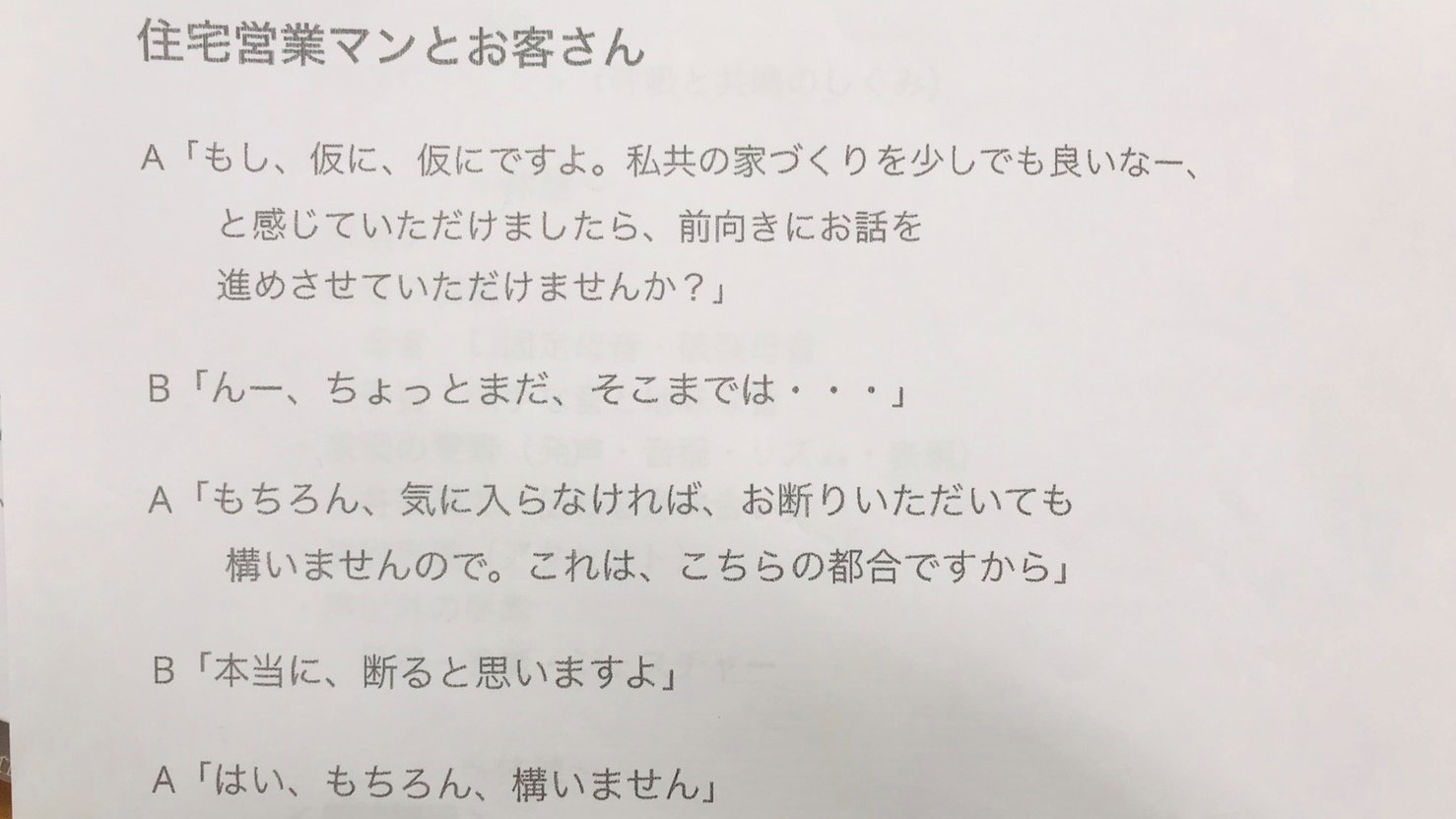
Let's practice speaking by actually getting into character! So, we tried reading out news scripts, fairy tales, novels
It had been since high school that I had read aloud, so I read the lines from the fairy tale feeling like I was taking a modern Japanese literature class
One of the situations was between a housing salesperson and a customer , and although I had no sales experience, I spoke while being conscious of how to get the customer to listen to me, and my tone was clear and cheerful.
At that moment, I realized, "So, in the end, what's important is the desire to communicate with the other person."
Finally
To see how much my voice had changed since the first self-introduction I filmed, I read the same thing aloud
At first, I spoke a little muffledly due to the nervousness and embarrassment of being filmed, but with the feeling that "I can't let the time I've spent practicing my voice go to waste...!", I was able to deliver my self-introduction while focusing on clear pronunciation
At this time, I wasn't at all conscious of having to "speak loudly!", and I realized that just by thinking "I'll try to use good pronunciation,"
(Apparently, I will be sent videos of myself speaking before and after the training, but I would rather not see them if possible, as I find it embarrassing...)
conclusion
Voice training is great
Unless you're a musician or a announcer, you don't usually get taught how to use your voice
However, as a working adult, talking to people is essential for any job
Just by changing the way you speak, you can make business negotiations go more smoothly and expand your circle of friends!
Take Seven and Beyond will continue to refine the business voice training menu, so why not give it a try

 1
1






